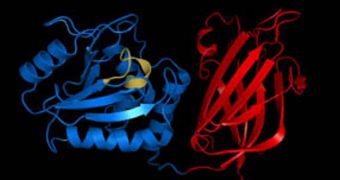In a series of recent investigations, experts identified a molecule that may play an important part in promoting longevity. The molecule has been found to make C. elegans worms live up to 33 percent longer than normal, and the team behind the discovery says that their work could also have additional implications for cancer research. The worms that were studied for this investigation are very similar to humans in this regard, and so specialists are hopeful that the results could also be translated to us too.
“The links we have found in worms suggest the same kind of interactions occur in mammals although human biology is certainly more complicated. We have much work to do to sort out these pathways, but that is our goal,” explains Jeffrey L. Benovic, who was a researcher on the new study. He is the chair of the Thomas Jefferson University (TJU) Department of Biochemistry and Molecular Biology, where he also holds an appointment as a professor. The scientist reveals that C. elegans worms that were engineered to be born without expressing the protein arrestin tended to live remarkably longer than their counterparts which expressed the molecule.
Benovic adds that the human equivalent of this protein is called PTEN and explains that this agent plays a very important role in suppressing the development of cancer tumors as well. Most of the proteins that were identified thus far in C. elegans have been proven to have human equivalents as well, the TJU team says. “A little less arrestin is good – at least for worms,” Benovic goes on to say. Details of the new study were published in the latest online issue of the esteemed scientific Journal of Biological Chemistry. The study itself was partially funded by the US National Institutes of Health (NIH), LiveScience reports.
“We don't know at this point if human arrestins regulate PTEN function or if anything happens to arrestin levels during the development of cancer. Do increasing levels turn off more PTEN, thus promoting cancer, or do levels decrease and allow PTEN to be more active? If it turns out to be the first scenario – that increasing amounts of arrestin turn off the tumor suppressor activity of PTEN, then it may be possible to selectively inhibit that process,” he adds. The group underlines, however, the fact that the exact correlations and control mechanisms between human arrestin and PTEN are not yet clear and add that more research is needed in this field.

 14 DAY TRIAL //
14 DAY TRIAL //